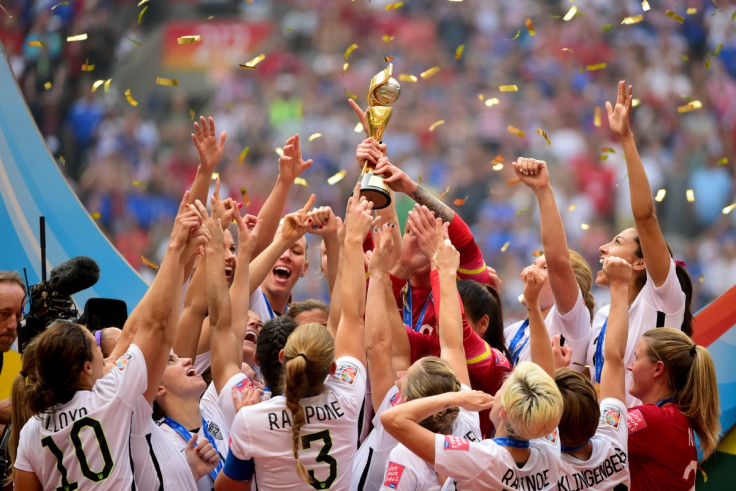Five female football champs sue US Soccer for paying them 25% of what male players rake in

Five top-draw female football athletes are suing the US Soccer Federation for wage discrimination, charging that the routinely phenomenal women's US soccer team earned an appalling fraction of the often mediocre men's team in 2015. The five players — among the top female athletes in the world — say they have been shortchanged on everything from standard pay to bonuses to appearance fees, even though they captured their third World Cup championship — and a record American soccer audience — in 2015.
They also generated $20m (£14m) more than the men's team in revenue that year, according to the complaint. "The numbers speak for themselves," said goalkeeper Hope Solo, one of the players to sign the complaint that was filed with the federal Equal Employment Opportunity Commission.
"We are the best in the world, have three World Cup championships, four Olympic championships." The men on the national team "get paid more to just show up than we get paid to win major championships," she added.
Co-captains Carli Lloyd and Becky Sauerbrunn, forward Alex Morgan and midfielder Megan Rapinoe joined Solo in the complaint. Though only five players signed the complaint, they said they were acting on behalf of the entire women's team, ESPN reported.
"We have been quite patient over the years with the belief that the federation would do the right thing and compensate us fairly," Lloyd, the most valuable player of last year's Women's World Cup, said in a statement. But "recently, it has become clear that the federation has no intention of providing us equal pay for equal work," said Rapinoe.
#USWNT absolutely deserve to be treated fairly in all ways. Important to remember that these issues are/can be collectively bargained
— Landon Donovan (@landondonovan) March 31, 2016
Officials of the US Soccer Federation didn't directly answer the complaint; they only said they were "disappointed" by the suit, adding: "Our efforts to be advocates for women's soccer are unwavering." President Sunil Gulati later said that the women didn't generate more income than the men, but didn't provide details.
Under different collective bargaining contracts with the men's and women's team, the pay standards vary wildly. According to the numbers cited in the EEOC filing, women earn $72,000 (£50,000) to play 20 friendly matches in a year, the minimum they are required to play. If they win every single match they earn $99,000 (£69,000). But the men would each earn $263,000 (£183,000) if they accomplished the same feat, so would earn 60% more than the women for accomplishing the same record. If men lost every single game they would still get $100,000, more than a prefect season for the women.
World Cup pay is also dismally disparate. The US women received a team total of $2m (£1.4m) when it won the World Cup in Canada in 2015. Yet when the US men played in the World Cup in Brazil in 2014, the team earned a total of $9m (£6.3m) despite being knocked out in the 16th round.
"In other words, the women were paid substantially less for playing substantially better," notes the complaint. The discrepancy continues even though the women's team has become the economic engine of the game in America, using US Soccer's own financial figures, the complaint argues. "This is the strongest case of discrimination against women athletes in violation of law that I have ever seen," said the players' lawyer, Jeffrey Kessler.
© Copyright IBTimes 2025. All rights reserved.






















